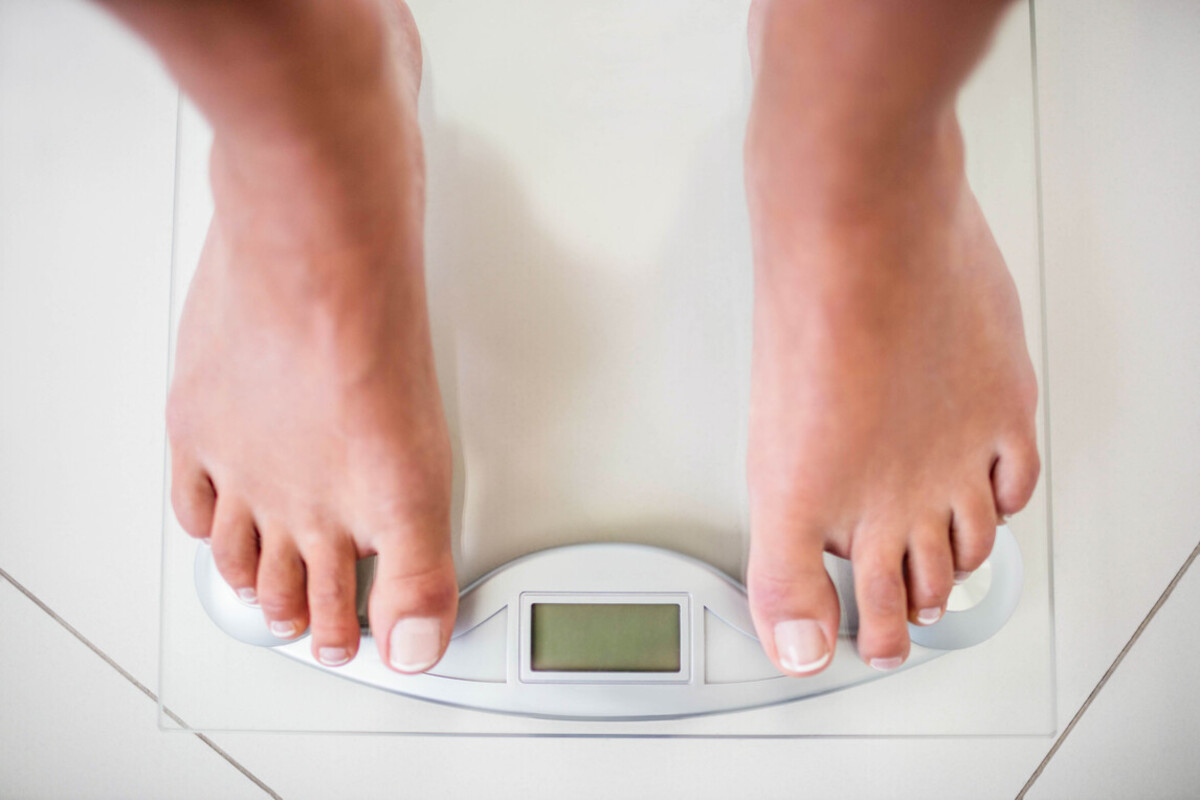You know what's shocking? Data from the US Centers for Disease Control and Prevention collected between 2015 and 2016 suggests that that "one in three" figure you've probably heard about adult overweight in the US isn't even close to being accurate. This data, instead, indicates that a whopping 71.6 percent of Americans over the age of 20 carry around more pounds than they really should. A good portion of them are clinically obese.

Hitting the weight loss jackpot requires many things, and factors like living a busy life, working more than one job, poverty, eating out a lot, being too tired to exercise, suffering from a chronic illness, being stressed, or not having an exercise partner can all get in the way. You know what else definitely interferes with weight loss? Not actually knowing how much you eat. Research has demonstrated that many people consistently underestimate their daily calorie intake, to the alarming tune of 598 to 3,671 calories a day.
Research is unambiguous: Weigh yourself daily to increase your odds of long-term weight loss success
Daily weigh-ins are, of course, only a small component of successful weight loss. If you weigh yourself daily, that's a great practice that should be combined with the many other things successful "losers" do — tracking calories, preplanning their meals, tracking their macronutrients, making healthy and responsible food choices, weighing their actual food for better portion control, and exercising.
One study showed, however, that 20.3 percent of those who hit their goal weight and then manage to maintain it weigh themselves every single day, compared to 11 percent of those who don't manage to keep their weight off.
Another study found that:
- Participants who weighed themselves daily lost eight to nine kilos, on average, after six months of trying.
- Those who didn't weigh in daily lost less in the same time period — somewhere between three and five kilos.
Yet another study conducted among obese participants concluded that weighing in daily makes it 11 times more likely that you'll be able to lose five percent or more of your starting body weight within six months. In another finding, daily weighing also reduces your risk of gaining the weight you lost back.
Why do daily weigh-ins matter so much?
If you're just getting started with weight loss efforts after previously eating whatever you wanted, whenever it was available, you may not have any idea how much you really eat or how many calories the foods you love so much are hiding. You may make efforts to reduce your portion sizes or your overall food intake but still fail to lose weight — because even healthy calorie-dense foods like nuts, fish, red meat, dried fruits, whole-grain breads, and protein shakes can contain an awful lot of calories even if you only have a little.
If, on the other hand, you've just been through a weight loss program or counted your calories, and you're quite happy with your results, you'll probably have a better idea of how much you're consuming. You may also be really bored of watching your daily calorie intake and tell yourself that you deserve a little break — with all the "cheat foods" that includes — after being so successful. This can cause you to slip back into old habits or create new bad ones.
Daily weigh-ins are, in short, a reality check. It's not really surprising that research discovered that people who weigh themselves daily have a lower daily calorie intake, snack less between meals, don't eat out as much, exercise more, walk more, watch less television (a sedentary activity), and commit to banishing high-calorie, unhealthy, foods from their homes more often. Anything less than daily weigh-ins — so even weighing yourself six days a week — is associated with less successful results.
So, how should you go about weighing yourself?
For the most accurate results:
- Make sure to use the same scale every day. It doesn't matter that much iff it's "off" by a bit — what matters is that the results are consistent, so you can see if you gained, lost, or maintained the same weight every day.
- Weigh yourself at the same time each day, as your body weight will fluctuate throughout the day. Many people prefer to step on the scale every morning, when their stomachs aren't full. You may like to go to the bathroom first.
- Strip down to weigh yourself, as different items of clothing weigh different amounts. Don't forget to take accessories like watches and hair pins out of the equation, either, unless you are going to be wearing the same ones every day.
Remember that it's completely normal to see some fluctuations or not to lose weight at all for a longer period of time if you're currently trying to slim down. Water weight plays a role too, especially for women, whose weight will also fluctuate with their menstrual cycles. If you're hitting the gym hard, you may not see the numbers on the scale go down as fast, or may even gain weight, as you start building muscle mass. That's why, in addition to weighing yourself every day, you will also want to measure your key areas (hips, waist, chest, perhaps upper legs and arms) as another way of tracking progress.
- Photo courtesy of SteadyHealth


Your thoughts on this